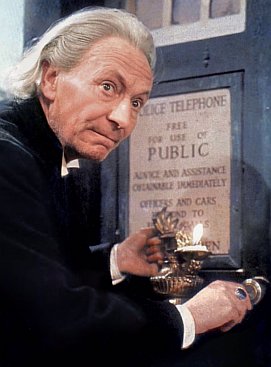“Doctor Who,” a British science fiction television series, made its debut on BBC TV on November 23, 1963. Created by Sydney Newman, C. E. Webber, and Donald Wilson, the show introduced viewers to the Doctor, a time-traveling, eccentric, and compassionate extraterrestrial being. The series became a significant part of British popular culture and one of the most beloved and enduring science fiction series in television history. Its innovative storytelling, creative special effects, and exploration of complex themes have garnered a dedicated global fan base over the decades.
The idea for Doctor Who came about as a response to the BBC’s desire for a family-oriented science fiction series. Sydney Newman, the Head of Drama at the BBC, wanted a show that would educate and entertain viewers, combining adventure and historical elements. He approached C. E. Webber with the concept, who then brought in Donald Wilson to help develop the idea further.
The first episode of Doctor Who, titled “An Unearthly Child,” aired on November 23, 1963. It introduced the audience to the mysterious Doctor, played by William Hartnell, and his time-traveling machine known as the TARDIS (Time and Relative Dimension in Space). The Doctor’s companions, Susan Foreman, Ian Chesterton, and Barbara Wright, were also introduced in this episode.
Despite facing initial skepticism from some within the BBC, Doctor Who quickly gained a loyal following. The show’s mix of science fiction, adventure, and historical settings captured the imagination of viewers of all ages. The Doctor’s ability to regenerate, allowing for different actors to portray the character over the years, also added to the show’s longevity and appeal.
Over the years, Doctor Who has become known for its iconic villains, such as the Daleks and the Cybermen, as well as its memorable companions and supporting characters. The show has tackled a wide range of themes and topics, including time travel, morality, identity, and the power of compassion. Its storytelling has often been praised for its ability to entertain while also addressing deeper issues.
Doctor Who has had a significant impact on popular culture, with references and nods to the show appearing in various forms of media. The series has also spawned spin-offs, including Torchwood and The Sarah Jane Adventures, further expanding the Doctor Who universe.
Throughout its long history, Doctor Who has undergone several changes and regenerations. William Hartnell was succeeded by Patrick Troughton, and the role of the Doctor has since been portrayed by actors such as Jon Pertwee, Tom Baker, Peter Davison, Colin Baker, Sylvester McCoy, Paul McGann, Christopher Eccleston, David Tennant, Matt Smith, Peter Capaldi, Jodie Whittaker, and most recently, Jo Martin.
Doctor Who has also seen changes behind the scenes, with different showrunners and creative teams bringing their own unique vision to the series. Despite these changes, the core elements that make Doctor Who so beloved have remained intact, ensuring its enduring popularity.
As of its 58th anniversary in 2021, Doctor Who continues to captivate audiences around the world. The show’s ability to reinvent itself while staying true to its roots is a testament to its enduring appeal. With its rich history, memorable characters, and thought-provoking storytelling, Doctor Who has firmly established itself as a cultural phenomenon.
Sources:

